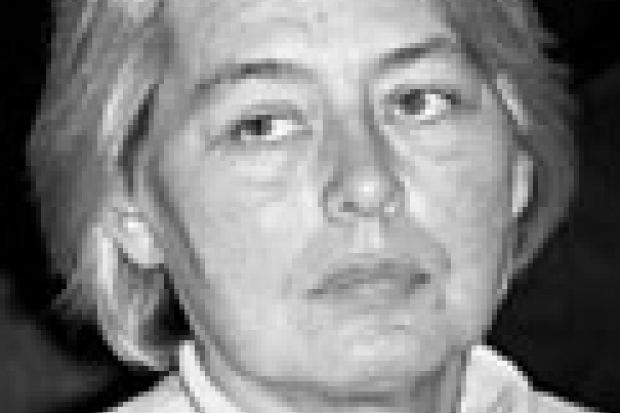The woman at the helm of Belgrade University faces the daunting task of re-establishing a historic institution that was starved of funding during the 13-year regime of Slobodan Milosevic.
Acting rector Marija Bogdanovic started her job when Serbia had no functioning government. This will change at the end of December, when republic elections provide a democratically elected authority.
Professor Bogdanovic, a 60-year-old philosopher, outlined her priorities following the September Yugoslav elections and the October 5 revolution that overthrew Mr Milosevic.
Her main goal is to ensure that a new university law replaces the politically motivated act passed during the Milosevic era. Professor Bogdanovic is a member of the commission set up to rewrite academic legislation.
The 1998 act made academic appointments dependent on party loyalty and required staff to sign new contracts that many viewed as crude pledges of party loyalty. Some refused and lost their teaching posts.
This has left Professor Bogdanovic presiding over a university from which more than 200 staff have been sacked in the past two years.
As a result, the university has hundreds of newly hired staff, some of whom do not have appropriate academic qualifications.
"Working on the new university law is the most urgent task. Then I want to get back the professors who were fired from the university. I want to enable them to return legally. Some have left the country. But I want all those who want to come back to be able to do so," she said.
Her next task will be to reverse decisions made under the act during the past two years and to subject the staff taken on since the act to rigorous academic examination.
In the faculty of medicine, more than 240 new appointments were made without adhering to procedures, Professor Bogdanovic said.
In the law faculty, head of the rightwing Serbian Radical Party and former deputy Serbian prime minister Vojislav Seselj was awarded a professorship, even though he had never supervised a student thesis.
In May 2001, there will be democratic elections for a new rector and new deans, according to procedures laid out in the new university law.
Professor Bogdanovic is keen to re-establish links with universities abroad and to begin scientific and teaching exchanges. This process is already under way. A European Rectors' Conference meeting in Cracow formally ended Serbia's suspension and, since then, Professor Bogdanovic has represented Belgrade at meetings in Rome and Sofia.
In December, Belgrade will play host to a team from the CRE. "We shall present them with an outline of the situation and they will see the conditions under which universities in Serbia work," Professor Bogdanovic said.
She hopes that this will spur Europe's universities to help Belgrade with scholarships and aid.
Professor Bogdanovic has a straightforward message for academics at universities in Britain and beyond: "I would like them to understand that the university community and the whole nation here was under a regime that was too aggressive. We needed time to mature and to gather our strength before we could challenge it and move forward."
Register to continue
Why register?
- Registration is free and only takes a moment
- Once registered, you can read 3 articles a month
- Sign up for our newsletter
Subscribe
Or subscribe for unlimited access to:
- Unlimited access to news, views, insights & reviews
- Digital editions
- Digital access to THE’s university and college rankings analysis
Already registered or a current subscriber?
